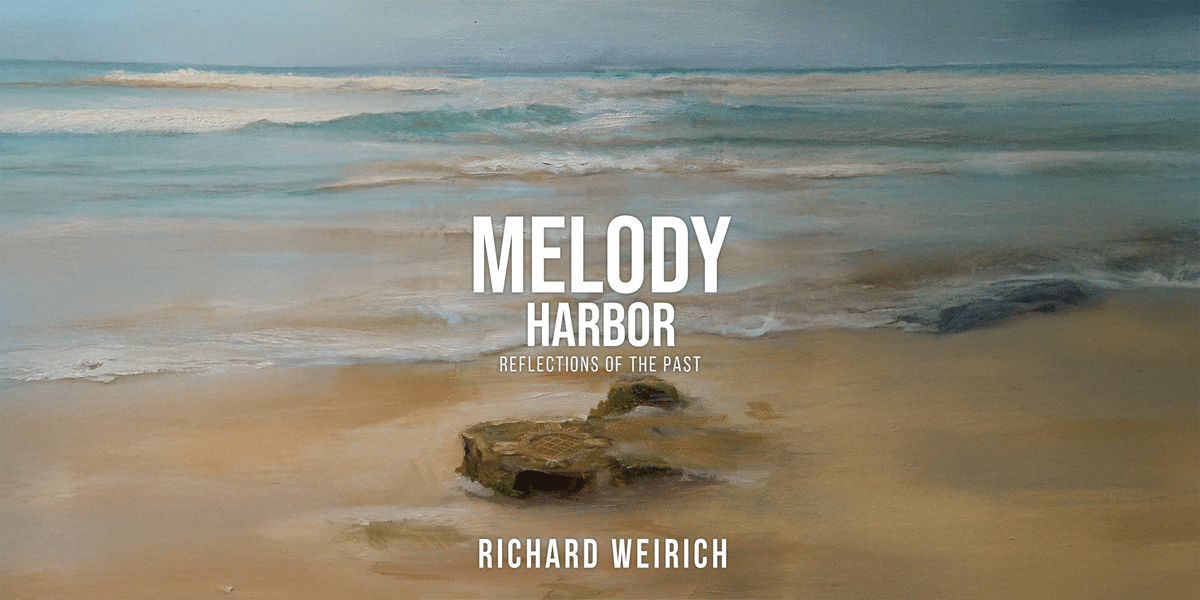By: Make Me Noteable
The media plays a crucial role in shaping public perception, particularly during times of crisis. In Richard Weirich’s Melody Harbor: Reflections of the Past, the media’s influence is explored through the eyes of Eddie Morrison, a seasoned news anchor who faces both professional and personal challenges as Hurricane Grace approaches the Alabama Gulf Coast.
The novel provides an insightful look into the ethical dilemmas journalists face when covering disasters, the pressure to sensationalize, and the impact of media coverage on public perception. Through Eddie’s experiences, Weirich crafts a narrative that critically examines the media’s role in times of crisis.
Media’s Influence on Crisis Coverage
When disaster strikes, the media becomes the primary source of information, but the pressure for high ratings often leads to sensationalism. In Melody Harbor, Eddie Morrison, a GNN anchor, struggles to balance his professional responsibility with the corporate demands of his station.
As Hurricane Grace approaches, Eddie is torn between providing accurate information and succumbing to sensationalist pressures. This conflict highlights the media’s influence during crises, where the rush for attention often amplifies fear and turns disasters into spectacles. For Eddie, the storm becomes not just a natural disaster but a battleground for his journalistic integrity.
Ethical Dilemmas in Crisis Journalism
The ethical challenges faced by journalists during times of crisis are at the forefront of Melody Harbor. Eddie’s position as an anchor places him in a unique position to shape public perception, but it also forces him to confront difficult questions about his role in the media landscape. As the hurricane approaches, Eddie is tasked with not only informing the public but also keeping them engaged and entertained. His station demands dramatic coverage, but Eddie’s sense of journalistic integrity pushes him to focus on delivering factual, relevant information.
Throughout the novel, Eddie grapples with the ethics of crisis journalism. Is it ethical to exaggerate the severity of a disaster for the sake of ratings? Should journalists prioritize the emotional impact of their coverage or stick to the facts? Eddie’s internal conflict exposes the fine line between responsible journalism and sensationalism.
In many ways, Eddie’s struggle mirrors the larger ethical questions that plague the media industry. How much responsibility do journalists have for the way their coverage influences public perception, especially during times of crisis?
The Impact of Media Coverage on Public Perception
In Melody Harbor, Weirich explores how media shapes the public’s understanding of a crisis. As Hurricane Grace approaches, sensational coverage heightens fear, influencing how people prepare and react. This cycle of fear-driven reporting affects both the public and the media. Eddie, as a news anchor, becomes increasingly aware of his station’s emotional influence on viewers.
The novel shows how the media often exploits fear to drive ratings, which can be dangerous when it manipulates public emotions. The story also highlights the emotional toll on journalists like Eddie, whose personal anxieties mirror the public’s fears, underscoring the impact of crisis coverage on both reporters and audiences.
Journalism’s Responsibility to the Public
Melody Harbor presents a critical examination of the responsibility journalists have in times of crisis. Eddie’s internal struggle is not just about his career but about his duty to the public. As the hurricane draws closer, Eddie faces a crossroads in his career and personal life, forcing him to reevaluate what it means to be a journalist in a world where ratings often matter more than truth.
The novel suggests that the true role of the media in a crisis is not to sensationalize but to inform and guide the public in a way that empowers them rather than fuels fear.
Eddie’s journey is a reminder of the importance of responsible journalism, especially during times of disaster. The media has the power to influence public behavior, but with that power comes a responsibility to provide accurate, thoughtful, and ethical coverage.
In Melody Harbor, Weirich challenges readers to consider the impact of media coverage during crises and reflect on how journalists can balance their ethical obligations with the pressures of the industry.
Summary
Richard Weirich’s Melody Harbor offers a thought-provoking look at the media’s role in the crisis. Through Eddie Morrison’s experiences, the novel explores the ethical dilemmas and pressures journalists face in high-stakes situations. It entertains while critically reflecting on the broader impact of media coverage during disasters.
For readers interested in the intersection of media, ethics, and human emotion, Melody Harbor: Reflections of the Past is a must-read, with its deep character development and insightful examination of crisis journalism. Get your copy today on Amazon!
Published by Zane L.














